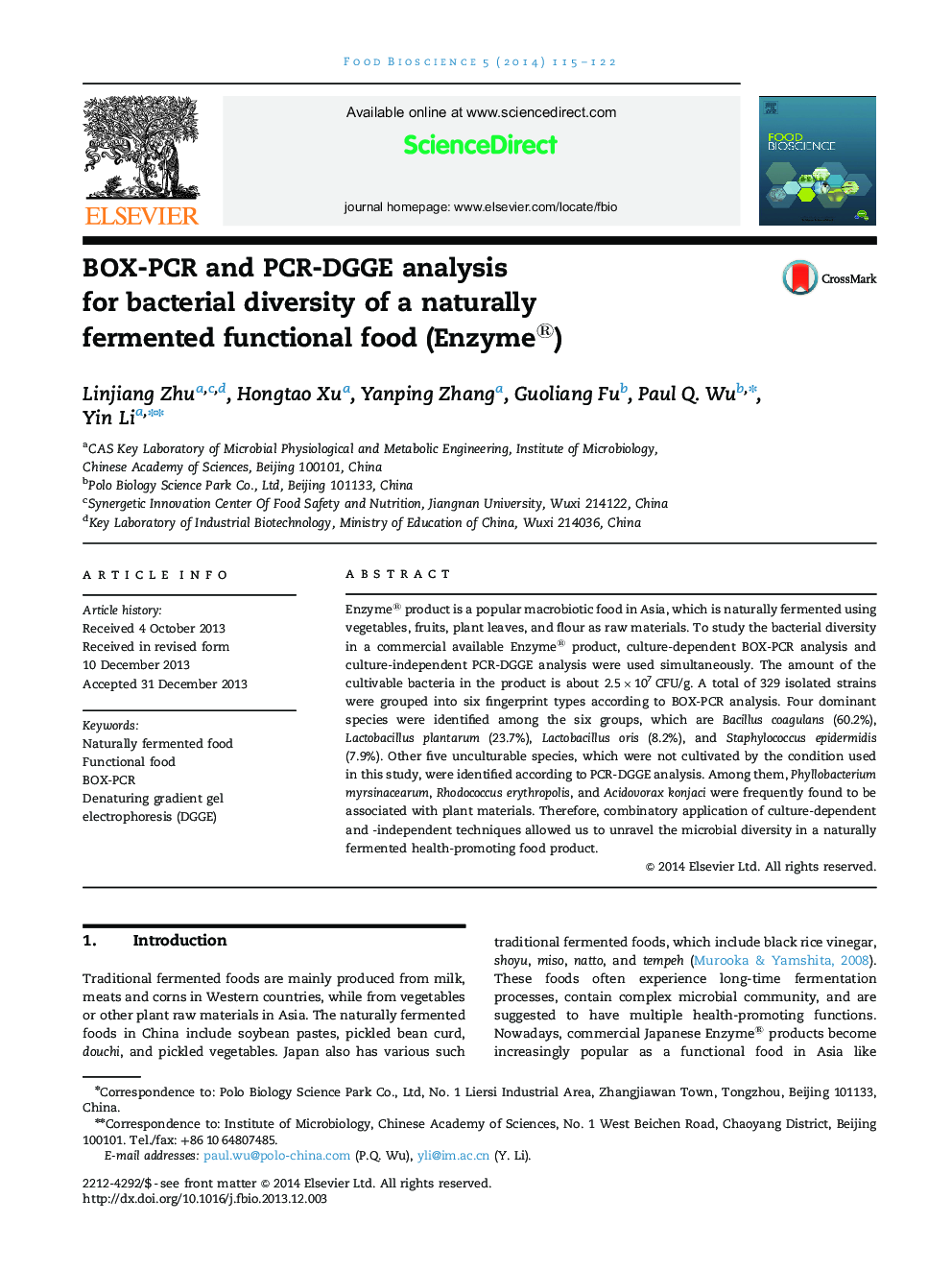| Article ID | Journal | Published Year | Pages | File Type |
|---|---|---|---|---|
| 19712 | Food Bioscience | 2014 | 8 Pages |
Enzyme® product is a popular macrobiotic food in Asia, which is naturally fermented using vegetables, fruits, plant leaves, and flour as raw materials. To study the bacterial diversity in a commercial available Enzyme® product, culture-dependent BOX-PCR analysis and culture-independent PCR-DGGE analysis were used simultaneously. The amount of the cultivable bacteria in the product is about 2.5×107 CFU/g. A total of 329 isolated strains were grouped into six fingerprint types according to BOX-PCR analysis. Four dominant species were identified among the six groups, which are Bacillus coagulans (60.2%), Lactobacillus plantarum (23.7%), Lactobacillus oris (8.2%), and Staphylococcus epidermidis (7.9%). Other five unculturable species, which were not cultivated by the condition used in this study, were identified according to PCR-DGGE analysis. Among them, Phyllobacterium myrsinacearum, Rhodococcus erythropolis, and Acidovorax konjaci were frequently found to be associated with plant materials. Therefore, combinatory application of culture-dependent and -independent techniques allowed us to unravel the microbial diversity in a naturally fermented health-promoting food product.
